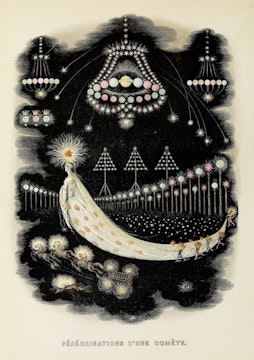
The Age of Impoliteness: Galateo: or, A Treatise on Politeness and Delicacy of Manners (1774 edition)
In the 1770s, a contagion was sweeping England and women were in danger: the danger of “contracting habits entirely opposite to their natural delicacy”. Take Belinda, for example, who after dinner, equipped with a linen napkin, “rummages the most remote cavities of her mouth and gums”, all the while thinking this behavior reflects “an infallible mark of her familiarity with the bon ton of fashionable life.” The contagious disease of bad manners did not discriminate by sex, however. It also infected fathers, with their eighteenth-century dad jokes: the man who “render[s] his whole family miserable, by making them dependent on his humour or caprice”. It corrupted the man-spreading public schoolboy, who, when in coffeehouses amid the public, “spreads himself before the chimney, and ‘gropes his breeches with a monarch’s air’”. Inoculation was possible, and the vaccine came in book form: a 1558 treatise by Giovanni della Casa, newly translated and prefaced by Richard Graves (who wrote the words above) in 1774: Galateo: or, A Treatise on Politeness and Delicacy of Manners.
Il Galateo, as it is known in Italian, had been making waves in England for centuries by the time this edition was released. The work — first translated into English in 1576 by Henry Peterson — was immediately taken up by young Oxbridge scholars, who wanted to ditch their reading lists for practical knowledge that would serve them at the Elizabethan court. Gabriel Harvey, for example, in a 1580 letter to Edmund Spenser, reports what Cantabs were clandestinely consuming in their sets: “Machiavell a great man: Castilio of no small reputation, Galateo and Guazzo never so happy.” It makes sense that a new translation would be needed in the late-eighteenth century, an era marked by unprecedented mobility. The nascent Industrial Revolution created a burgeoning middle class of merchants and employees who found themselves attempting to ascend the greased rungs of an increasingly nuanced social hierarchy. The Earl of Chesterfield described the situation four years after Graves’ translation of Galateo hit bookshelves: “An aukward country fellow, when he comes into company better than himself, is exceedingly disconcerted. He knows not what to do with his hands, or his hat”. Unlike bloodlines, however, good behavior can be aped, and the popularity of etiquette books in this period — not to mention the rise of the novel — speaks not only to a desire for pecuniary emulation but also social mimicry.
The takeaway from Galateo is simple — politeness is the art of pleasing others. Some examples of virtuous behavior are easy to enact. Well-bred men neither take “monstrous strides” nor let their hands “hang dangling down”. Indecent and improper men make a habit of “thrusting their hands into their bosoms, or handling any part of their persons which is usually covered”. Loud and messy sneezers were as detested in Della Casa’s time as our own, those people who deign to “sputter in the very faces of those that sit near them”. Spittle, the public paring of fingernails, and flatulence are held in eternally low esteem. Pages are devoted to table manners. Toothpicks make one look “like a bird going to build his nest”; only “inn-keepers and parasites” express great pleasure when consuming food and wine. Other examples are less accessible, such as the prohibition on smelling anything you intend to eat or drink. One emergent theme is a kind of social prophylaxis for the sensorium. The politest personages in Galateo are those that keep the mouth, ears, and eyes free of offensive stimulus — protecting their own bodies and those of their peers. The motif is taken to ends that seem initially odd, at least to the modern-day reader, who is told that it is rude to peruse personal correspondence in front of guests. The logic makes sense, however, for one should never portray themselves as bored, idle, or distracted in the company of others: the affront of an acquaintance checking text messages over drinks predates smartphones by several centuries, it seems.
In addition to prohibitions of the body, there are dicta regarding the spirit. Men must not be too “thoughtful” — “wrapt up in your own reflections” — or exceedingly sensitive, for to socialize with the latter kind of person is like being “surrounded with the finest glass ware; to which the slightest stroke may be fatal”. Discussing dreams is boorish, for most people are not “wise men amongst the ancients” but see only “trifling and frivolous” images thrown against the screen of sleep. Lying is bad. Arrogance is bad. Gossip should be reined in by a government of the tongue. No one ever wants unsolicited advice. People who subject others to “jingling puns” mistake wit for the shopworn speech of the low and vulgar. A prostitute should never be described as such — “an immodest woman” will do just fine. Galateo ends with a bit of rhetoric that evinces its author’s grace and manners: “because each of the particulars hitherto mentioned is marked but with a slight degree of error, therefore there can be no great harm in neglecting the whole”. What could be more gauche than instructing a stranger how to act?
Giovanni Della Casa (1503–1556) was a Florentine humanist and cleric, born into mercantile wealth with aristocratic origins. After a libertine youth in which he penned obscene poems, he leveraged family connections, which trumped his shaky religious convictions, and found himself appointed Archbishop of Benevento. Initially angling after a cardinalate, the change of papal regime led Della Casa to take retirement, living “in tranquility, rest, and idleness amongst my books”. Here he set about composing, among other texts, what we now would call an etiquette manual, addressed to a young nobleman. Written between 1552 and 1555, Il Galateo was completed just a year before his death. In the months of his final decline, Della Casa asked a nephew to incinerate his compositions, but — thanks again to a network of family and friends — Il Galateo was published posthumously, seeing French, Spanish, German, and Latin editions circulating before the century’s turn, and dozens of others since. The work’s subsequent influence was so great that it inspired envy and impolite admonishments from other writers: Laurence Sterne in Tristram Shandy wonders how Della Casa managed to compose such a work — spending, as he did, “the greatest part of his time in combing his whiskers”.
For another Italian book of manners from the sixteenth century, see our post on Baldassare Castiglione’s The Book of the Courtier (1528).
Feb 27, 2024








